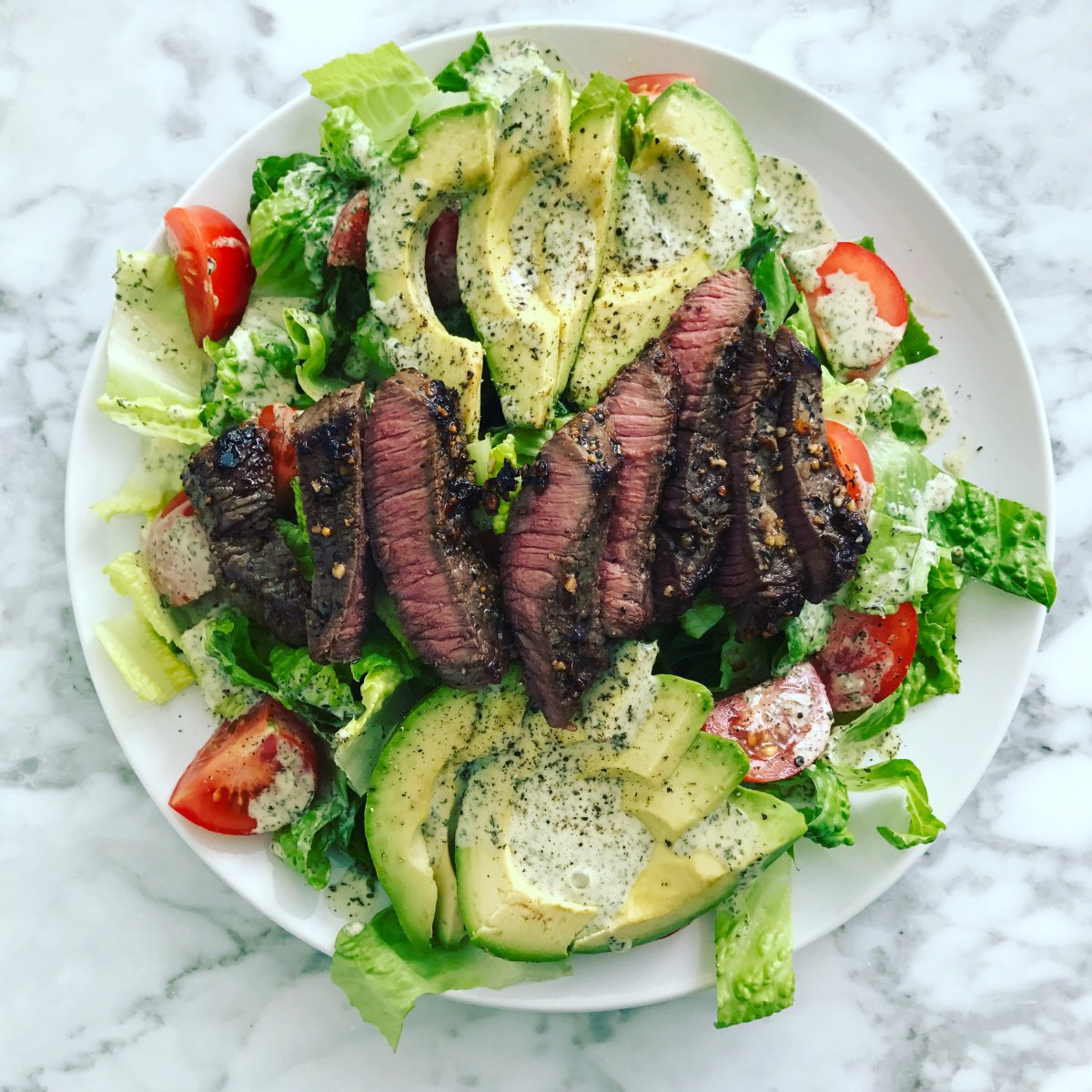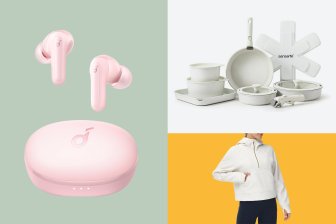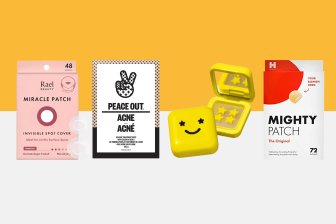The term “clean eating” has been thrown around in the diet world by celebrities like Gwyneth Paltrow and Jessica Alba. And while it has good intentions — urging people to scrap junk food and swap it for something nutritious — one report says these diets can cause weak bones.

According to recent research by the National Osteoporosis Society in the U.K., four out of 10 people between the ages of 18 and 24 have attempted clean eating by cutting out major food groups, the Telegraph reports.
The society argues cutting out dairy can lead to weak bones and an increased risk of developing osteoporosis.
“Diet in early adulthood is so important because by the time we get into our late twenties it is too late to reverse the damage caused by poor diet and nutrient deficiencies and the opportunity to build strong bones has passed,” professor Susan Lanham-New, a clinical advisor to the National Osteoporosis Society, told the newspaper.
READ MORE: Feeding your child a vegan diet? Parents could face jail time in Italy
“Without urgent action being taken to encourage young adults to incorporate all food groups into their diets and avoid particular ‘clean eating’ regimes, we are facing a future where broken bones will become just the ‘norm.’”
What does clean eating actually mean?
Kate Comeau, a dietitian and spokesperson for Dietitians of Canada, says “clean eating” is a vague and unscientific term using by bloggers, alternative health practitioners and others to categorize foods.
“The term really adds to the confusion around food and food decisions in my opinion. Often, ‘clean eating’ includes eating foods made at home from basic ingredients, instead of ultra-processed foods. This is a solid recommendation, but can be taken too far,” she tells Global News.
READ MORE: Could regularly eating mushrooms prevent dementia and Alzheimer’s disease?
Registered dietitian Abby Langer adds the risk of relying on “clean eating” is that it categorizes food as either “good” or “bad.”
“Assigning a moral judgement to food like ‘clean eating’ implies that people who don’t have a ‘clean’ diet are somehow ‘dirty’ or ‘impure.’ That’s a really unhealthy way to see food and eating in general,” she says.
“Also, if you’re ‘eating clean’ and cutting healthy food out of your diet because you don’t believe they fit, that can be a serious issue – especially for people with a history of, or at risk for, an eating disorder.”
Eating clean as a lifestyle change
Nadia Ali started her version of clean eating in the summer of 2014.
The 29-year-old public relations consultant from Mississauga, Ont. says her diet consists of whole foods, fruits, vegetables, grains and healthy fats. In the beginning, her goal was weight loss, but over time, she noticed how her body started to feel.
Ali lost 25 pounds with clean eating, weight training and meal planning. Typically, her meal plans change according to her training schedule. She says one the hardest things about adjusting to this way of eating was getting started.
READ MORE: Can two weeks of ‘clean eating’ make you healthier?
“In order to see results you have to stay consistent. In my line of work, I’m out to meetings quite often and have tight deadlines. Making sure I get my meals in on time is crucial, otherwise I’m really tempted to cheat,” she says. She does, however, have cheat days.
On a typical day, Ali will have six meals, everything from a smoothie with a scoop of whey protein, lean protein like chicken, seven ounces of veggies, large salad and a protein shake.
She also cut out dairy after taking a food sensitivity test.
“I feel too good being off dairy. It’s been six weeks since I eliminated it from my diet.”
Making that lifestyle consistent
Erin Stewart cut out gluten and dairy a year ago, but recently gave up sugar, legumes, grains and alcohol, a decision her doctor supports.
The 38-year-old freelance sponsorship and events coordinator was diagnosed with an autoimmune disorder last year, and through her own research, cut out dairy and gluten to reduce inflammation.
READ MORE: Detox or cleanse? You may want to try ‘clean eating’ instead
“I wanted to make a major change on my relationship with food and how it affects me. It’s been a hard transition withdrawing off everything, but now I see the benefits and cannot imagine ever going back to eating any of the above.”
Typically Stewart’s meals consists of scrambled eggs with veggies, protein, sweet potato hash or an occasional fruit for breakfast. For lunch, she will opt for soup, curry or salad, and she’ll have fish, meat, cauliflower rice and veggies for dinner.
“I try to stick to three solid meals and no snacking,” she says.
When it comes to missing nutrients, Stewart says she makes sure she gets calcium from other sources like leafy greens and seafood.
READ MORE: This is the No. 1 sabotage to your healthy eating diet plan, according to scientists
Is dairy the enemy?
Health experts agree while dairy is a good source of calcium, it is not the only way to get it.
“We can get our calcium needs from non-dairy sources like kale, almonds, broccoli, and black-eyed peas. Yes, dairy is a very rich source of calcium, but that doesn’t mean we should rely on dairy alone to get this nutrient,” says registered dietitian Anar Allidina.

“There are many other non-dairy options for people like soy milk, rice and almond as well as coconut milk,” she adds.
But Langer says you should assess the reasons why you want to cut it out in the first place. Of course, tolerance or vegan diets are one thing, but some people believe cutting out dairy will equal weight loss.
“While I certainly believe that you can have a healthy diet without dairy, you should examine your reasons for cutting it out. Are you basing them on some ‘health guru’s’ recommendation that has no solid science behind it? Or, are you truly intolerant to it?,” she says.
Don’t fall for fad diets
Langer adds regarding the clean eating habits of celebrities like Paltrow and Alba, these are not always the healthiest ways of creating a relationship with food.
“I just did a detox from Gwyneth Paltrow’s Goop website, for a video. It was terrible and completely idiotic in terms of what was cut out,” she says. “People idolize celebrities and want to be them, so they tend to listen to what Khloe Kardashian, Gwyneth, and other celebrities’ advice about diets. It’s really sad.”
Allidina says it’s also important to realize these ambassadors of fad diets have personal trainers, chefs and stylists at their fingertips.
How to actually eat healthy
But experts agree, clean eating should just be labelled as healthy eating and healthy eating starts with learning how to cook simple meals at home, Comeau says.
“Food should be delicious, enjoyable and nourishing – not boring or restrictive. If you’re not sure where to start, focus on filling at least half of your plate with vegetables and drinking water (instead of sugar-sweetened drinks) most of the time.”
READ MORE: Foods for your liver: 7 foods that naturally cleanse and clean your liver
Langer says focus on whole foods: lean protein, lots of veggies, whole grains, fruit, and water.
“Avoid eating foods from a can, wrapper or a box and you should be good.”











Comments